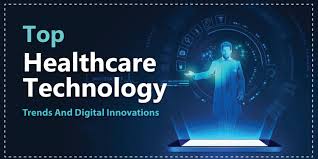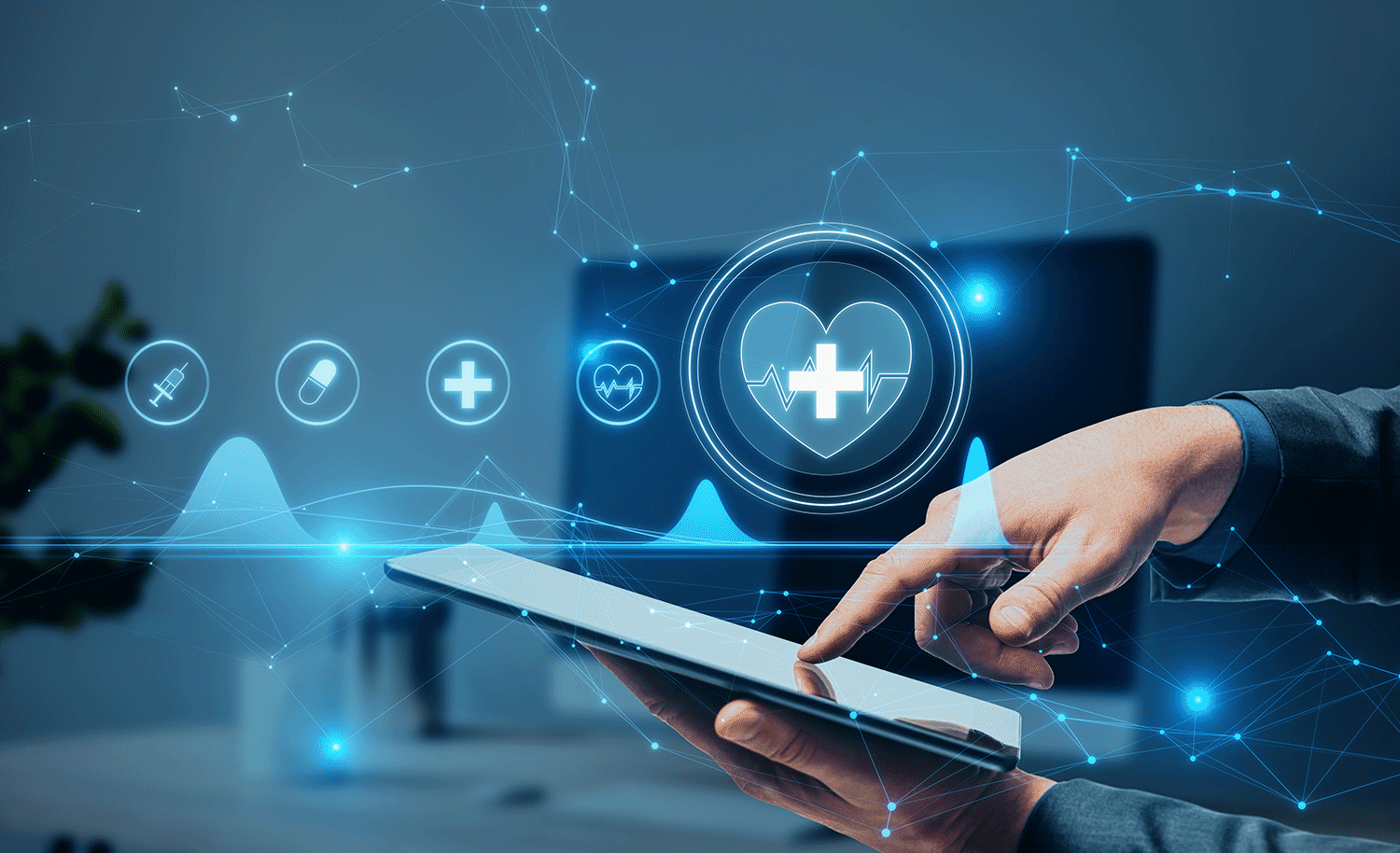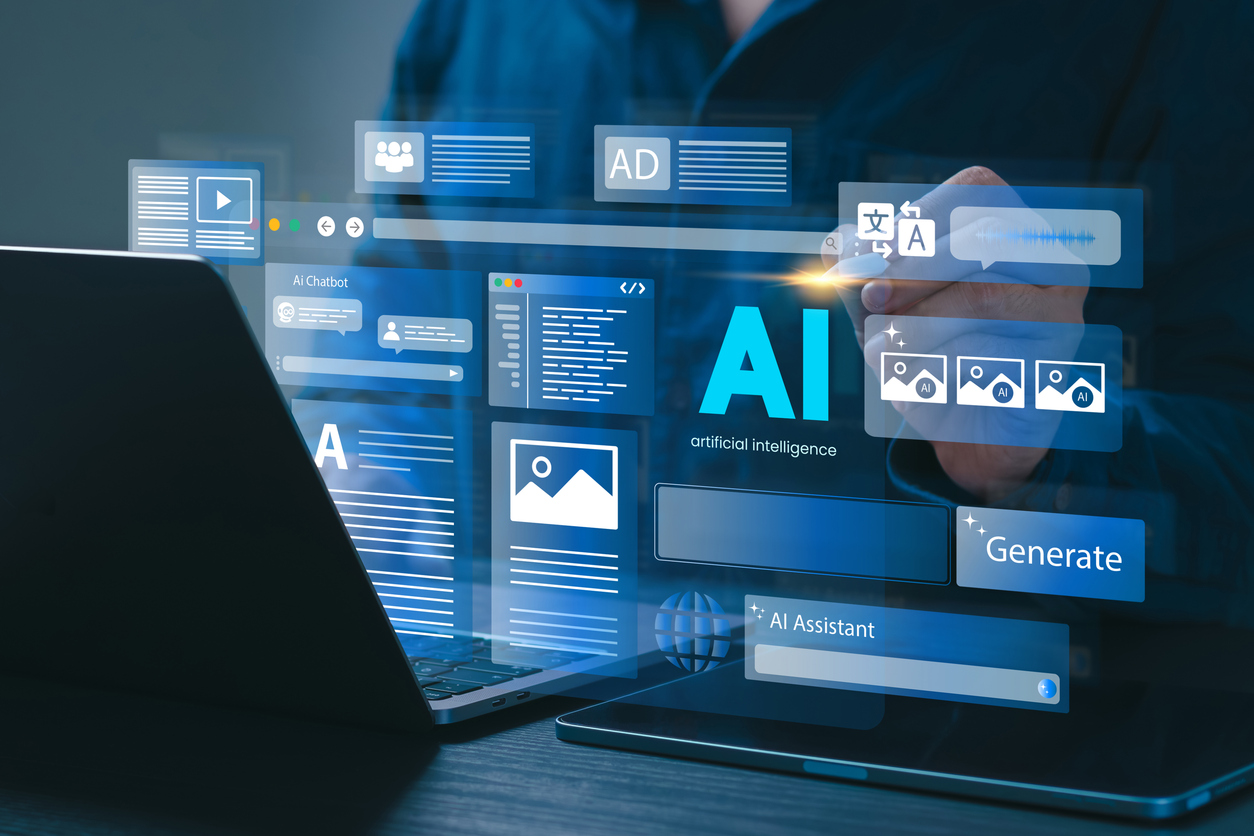







The healthcare industry is undergoing a significant digital transformation driven by advancements in technology. From telemedicine and AI-driven diagnostics to wearable tech and blockchain for data security, these innovations are reshaping how we approach patient care. This blog delves into the latest technology trends in healthcare for 2024, providing insights into their applications, benefits, and future potential. Whether you're a healthcare provider, tech enthusiast, or business leader, discover how digital solutions are revolutionizing the industry.
1. AI and Machine Learning in Diagnostics: Revolutionizing Precision and Speed
Artificial Intelligence (AI) and Machine Learning (ML) are transforming diagnostics by enabling quicker, more accurate identification of diseases. From analyzing medical images to predicting patient outcomes, these technologies minimize human error and optimize decision-making. AI-powered tools like predictive analytics and decision support systems are especially valuable in critical areas such as oncology and cardiology.
For example, AI can detect anomalies in radiology scans within seconds, aiding radiologists in prioritizing urgent cases. As algorithms continue to improve, we’re seeing a shift towards proactive healthcare, where conditions can be identified even before symptoms manifest
2. Telemedicine Expansion: Breaking Barriers to Access
Telemedicine has emerged as a vital tool in bridging the gap between patients and healthcare providers, particularly in underserved areas. Video consultations, remote monitoring, and virtual check-ins offer patients access to care from the comfort of their homes.
This trend was accelerated by the pandemic, but its benefits—cost savings, convenience, and improved patient compliance—ensure its longevity. The integration of AI-driven chatbots and virtual health assistants is also enhancing telemedicine platforms, providing real-time responses to patient queries and automating administrative tasks for providers.
3. Wearable Technology: Empowering Preventive and Personalized Care
Wearable devices such as smartwatches and fitness trackers are no longer just trendy gadgets; they are critical health management tools. Equipped with sensors to monitor heart rate, sleep patterns, glucose levels, and even blood pressure, these devices empower individuals to take charge of their health.
By continuously collecting data, wearables help in early detection of anomalies like arrhythmias, alerting users to seek medical attention promptly. Their role in preventive care is unmatched, and the integration with healthcare systems enables seamless sharing of data with physicians for better care coordination.
4. Blockchain in Healthcare: A Game-Changer for Data Security and Integrity
Data breaches are a growing concern in the healthcare sector, making blockchain technology an indispensable solution. Blockchain ensures secure, decentralized storage of patient records, providing tamper-proof access to authorized personnel only.
Beyond data security, blockchain simplifies administrative processes like claims management, reduces fraud, and enhances supply chain transparency for pharmaceuticals. This dual role of ensuring privacy while optimizing operations is why blockchain is gaining traction among healthcare providers and insurers alike.
5. IoT in Hospitals: Enhancing Operational Efficiency and Patient Monitoring
The Internet of Things (IoT) is powering a new era of connected healthcare. Smart devices such as IoT-enabled infusion pumps, patient monitors, and wearable patches improve hospital efficiency and patient safety.
These devices collect real-time data, allowing clinicians to track patients’ vital signs and intervene promptly when necessary. IoT also supports asset tracking, ensuring that critical equipment is readily available when needed. By reducing manual errors and streamlining workflows, IoT helps hospitals provide better outcomes while managing costs.
6. Virtual Reality (VR) and Augmented Reality (AR): Transforming Training and Treatment
Immersive technologies like VR and AR are finding groundbreaking applications in healthcare. VR is widely used for pain management, offering patients distraction therapy during procedures. Meanwhile, AR assists surgeons with precise navigation during complex operations, overlaying 3D images of anatomy onto the surgical field.
In medical training, these technologies provide lifelike simulations, allowing students to practice and refine their skills without risking patient safety. As AR and VR tools become more sophisticated, their potential to revolutionize patient care and education is boundless.
The convergence of technology and healthcare is creating exciting opportunities to improve patient outcomes, streamline operations, and address global healthcare challenges. From personalized medicine powered by wearables to secure blockchain solutions, these trends are shaping the future of healthcare delivery.
As we move forward, the key lies in adopting these innovations responsibly, balancing technological advancements with patient-centric care.
What are your thoughts on these trends? Are you ready to embrace the digital transformation in healthcare?
